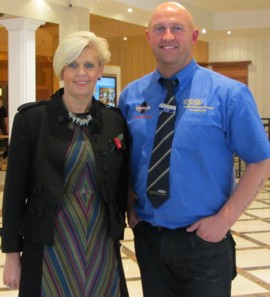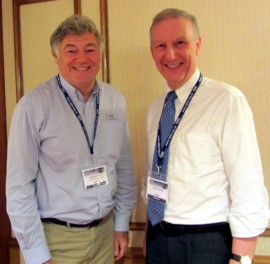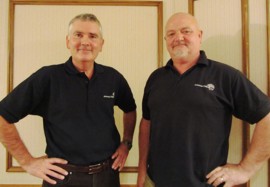The technical seminar programme at PestTech 2014 proved popular with both the session on waste disposal and the Pest Control News workshop, attracting big audiences over 100 for the former and heading towards 150 for the workshop.
Matt Womersely from the Environment Agency outlined the duty of care that pest professionals have to ensure their waste is managed properly and, where there is no alternative, disposed of safely. He covered important concepts such as the hierarchy of waste, the list of wastes and how to identify the type of waste you are dealing with as well as the requirements for transfer and consignment notes. Copies of the new BPCA Code of Best Practice for Pesticide Waste were available as were documents from both Barrettine Environmental Health and Killgerm outlining the waste schemes that they operate.
|
The popularity of the waste and Second-Generation Anticoagulant Rodenticides Stewardship session (read more about the PCN SGARs workshop) is clear evidence of the appetite among pest professionals for detailed information on what they need to do to. This same thirst for knowledge was also demonstrated by those attending the CEPA CEN industry standard session. The new European Standard for Pest Management Services (now known as the CEPA CEN Standard) is reaching its final stages. It is expected that the UK standards body, that’s the British Standards Institute (BSI), will publish the UK version early next year. Unfortunately in the half hour allocated there was no time to explain the detail but for those who are already qualified to RSPH Level 2, and running professional pest control businesses, the requirements are unlikely to be particularly onerous. However, there will be additional costs, in particular to cover the auditing process. As Dr Suter pointed out, once published anyone will be able to buy a copy of the standard and, without a proper auditing process, unscrupulous pest controllers could simply claim to be meeting the standard when they quite clearly are not. The integrity and reputation of the standard will depend on having a good auditing process. The CEPA certification process will be valid for three years, with surveillance audits every 18 months. Quite where all these suitably qualified individuals will come from remains unclear! Developing new business The first, a double act by David Cross and Kevin Brown representing RAMPS UK (the Register of Accredited Metallic Phosphide Standards), explained how new opportunities are opening-up for pest professionals who are fully qualified to use aluminium phosphide products like Phostoxin. This is because, come November 2015, only those who hold a recognised certificate of competence will be able to use these gassing compounds. Kevin and David believe this is likely to produce a surge in demand from farmers and landowners for professionals to undertake this work for them. A new market is also beginning to develop in urban deer management. Mike Allison and Tony Moore from Jelen Deer Services predicted that, where deer and people come into conflict in the urban environment, (and with deer numbers rising steadily this is increasingly likely), it will be more acceptable to the public if professional pest controllers do the culling rather than the shooting fraternity. Drawing an analogy with foxhunting, Tony explained that the public will be very unlikely to support culling by individuals who enjoy deer stalking as a sport, hence the opportunities for pest managers. This has led NPTA and Jelen Deer to join forces to develop a new training course on urban deer management. The first course will be held at NPTA’s head office in Nottinghamshire on 27 November. |
|
|
|
Other seminars covered the launch of an alternative to RSPH/BPCA Level 2 qualification, which is being introduced by Lantra, an update on the ‘dos and don’ts’ of the general licence for birds by Nigel Shelton from Natural England and the opportunities to use bed bug detector dogs presented by Peter Rigby of Trust K9. In the final session of the day, incoming National Pest Technicians Association (NPTA) chairman, Adam Hawley, accompanied by Killgerm’s Sabra Fearon, who has recently joined the NPTA board, explained how the association is intending to increase its professionalism. A new website has just been launched and new training courses are being developed. These included the urban deer management course and the new Lantra alternative to the RSPH Level 2 qualification, both announced during the event. A new urban fox course was also announced. There are plans too to expand the NPTA apprenticeship scheme to encourage more young people to make their careers in pest management. As the association grows, the need for more administrative and field support is also growing, so NPTA is looking to bring in additional support staff and maybe even a full-time auditor, although this will very much depend on how that the SGARs stewardship scheme pans out. Discussions are also on-going into how best to communicate with members and a proposal to develop a briefer newsletter to replace the Today’s Technician journal is currently under discussion. Participation at board level of members outside the Midlands heartland is also being encouraged and the technology for remote participation via Skype has already been trialled. There is also to be a new branch of NPTA in Ireland. |
||







